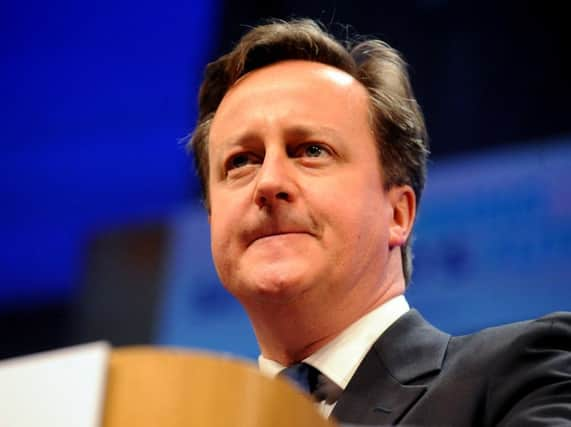Queen’s Speech: Powers for Holyrood to be unveiled


The Smith Commission plans were drawn up after the referendum No vote and will give Holyrood new controls over income tax rates and bands in Scotland and some welfare.
New measures to restrict the voting power of Scottish MPs at Westminster – so-called English Votes for English Laws – will also be among the measures set out in the new government’s programme at Westminster.
Advertisement
Hide AdAdvertisement
Hide AdThe SNP says the Smith Commission plans do not go far enough and Prime Minister David Cameron has met First Minister Nicola Sturgeon to discuss further devolution beyond what was proposed.
SNP Westminster leader Angus Robertson said the Queen’s Speech is an “early test” for the UK government after the Nationalists gained 56 of Scotland’s 59 seats in the referendum.
He added: “The people of Scotland have spoken and Westminster has a democratic duty to listen.”
Downing Street said the programme being unveiled today will show it is “getting on with” the work of delivering on the Tory election manifesto.
The package, the first from a Conservative-only administration for nearly two decades, will also include a flagship bill for a vote on EU membership, as well as implementing key pledges such as extending the right to buy scheme to 1.3 million housing association tenants.
There are also expected to be controversial proposals for replacing the Human Rights Act with a bill of rights, reforming strike laws and curbing benefits.
Other legislation will guarantee no rises in income tax, VAT or national insurance before 2020, and promise that no one working 30 hours on the minimum wage will pay income tax.
With a narrow majority, the Prime Minister faces a challenging task to keep his 330 MPs together and avoid revolts on issues such as the timing and ground rules for the referendum and human rights reform.
Advertisement
Hide AdAdvertisement
Hide AdFormer attorney general Dominic Grieve QC warned replacing the Human Rights Act with a bill of rights could lead to Britain having to leave the Council of Europe, which would be “reputationally very damaging”.
He said: “If we were to produce a bill of rights which is incompatible with our membership then it would create a series of problems which could ultimately lead to our having to leave the Council of Europe and that would be reputationally very damaging for us.
“The other thing it would do is to seriously damage the good work which the European Convention has done in improving human rights round our continent.”
Asked whether scrapping the Human Rights Act would lead to the UK withdrawing from the European Convention on Human Rights (ECHR), former Conservative defence secretary Dr Liam Fox said: “I don’t think it has to because we are not scrapping human rights, let’s be very clear about that.
“What we are doing is to ensure that when these matters are discussed in courts, it’s the British court that has the final say, not a foreign court with unaccountable judges.”